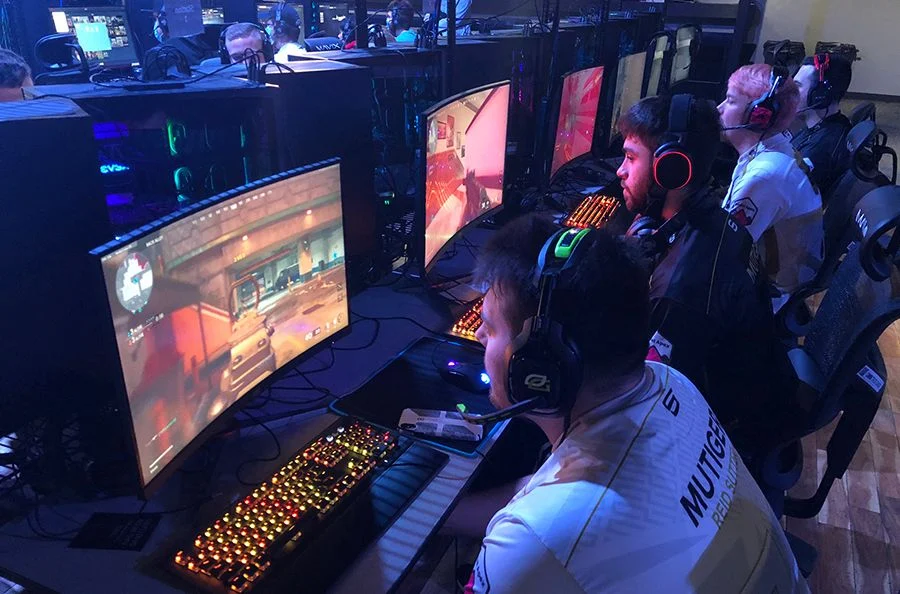Esports are absolutely huge. If you aren’t part of the gaming universe, it’s hard to understand how incredibly gargantuan gaming has become. Last year, total spending on video games in the US, including games, consoles and accessories, reached $56.9 billion. That’s more than movies and recorded music combined. It’s gobsmacking.
Nowhere is this growth more evident than at Levelup Esports Arena, which opened in Overland Park in April. One of the largest gaming and esports venues in the country, covering more than fifteen-thousand square feet, Levelup includes broadcast and production facilities, a purpose-built arena with a hundred gaming PCs, dedicated streamer studios, console gaming suites, merchandise and, almost incidentally, a bar and restaurant. It’s quite the big tadoo. Governor Laura Kelly made an appearance for the opening.
The educational component at Levelup is especially interesting. Youth league play, K-12 after-school programs and boot camp training are all on the calendar. At first glance, this seems odd. Boot camps for video games? Weird, right? Only if you live in the past. Nearly two-hundred colleges and universities in this country offer some sort of gaming scholarship. Which they should. Think about it. Which makes more sense: scholarships for games that billions play or a scholarship to row crew? Nobody’s going to pay to watch you row boats on a river. For an oldster like me, the dynamic around these youth programs echoes the dynamic around gaming itself. At first, it’s easy to object in an old-man-shakes-fist-at-cloud sort of way. A little more thought can lead to reassessment and, eventually, a begrudging respect.
No, gaming isn’t perfect. Jokes about basement-dwellers are common enough to be cliché, but that doesn’t mean there aren’t real drawbacks to such a sedentary pastime. For an activity with “sports” in the name, esports sure demand an awful lot of sitting.
Virtual violence is also an issue. There are legitimate questions about the connection between violent games and human aggression. Is it a direct, causal link? Of course not. But it’s equally preposterous to suggest that violent games have no effect at all. You will never convince me that it’s completely healthy for a human being to spend several hours a day pretending to kill. There are also cultural concerns. The gaming audience has grown. These days not everyone fits the teen boy stereotype. In 2020, surprisingly, roughly forty percent of gamers in the United States were female. As the demographic has changed, the games have changed with them. Titles with explicit violence and sexist stereotypes have been joined by more varied and inclusive games. Perhaps in response to this perceived encroachment on their “turf,” a seg-ment of more traditional gamers have developed a half-ironic, Cartman-esque culture of bigotry and abuse. It’s ugly.
There are, however, counters to all of these anti-game talking points. Yes, absolutely, there are unhealthy things about gaming. There are also unhealthy things about football, action movies, cars, red meat, and pretty much everything else on the planet.
If you’re genuinely concerned about gamers who are stuck in a basement for ten hours a day, Levelup is an undeniably good thing. It’s a place where players can meet in the flesh, sharing their passion and making real world connections they otherwise never would. The same goes for the nastier aspects of male gamer culture. The best remedy for alienation and antisocial behavior is real human contact. A gaming venue like Levelup can offer it. That’s nothing to shake your fist at.





